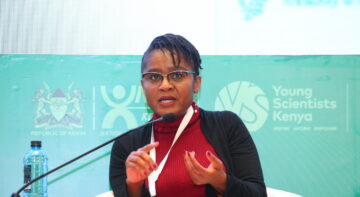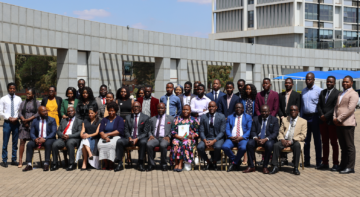Blogs

Good Governance Strand Leader
Director “ Science Communications & Evidence Uptake, African Institute for Development Policy (AFIDEP), Kenya
[As published 26 April, 2018 on the Africa Evidence Network]
Former UN Secretary-General, Kofi Annan, once said, “good governance is perhaps the single most important factor in eradicating poverty and promoting development”. This is because bad governance that often manifests through, among others, mismanagement of public resources, corruption, waste, and a lack of transparency and inefficiency in the delivery of social services, remains one of the biggest challenges to development in much of sub-Saharan Africa. In the 2017 Transparency International’s Corruption Perception Index, the region was the overall worst performing, as has been the case in many previous years.
We believe that evidence is the next central ingredient in improving governance. Are you one of the many actors in sub-Saharan Africa working to improve decision-making in governance processes? If so, how are you doing this and what lessons and insights are you drawing from this work?
Governance is a very political process, and so evidence has to compete with many other factors to inform governance processes and decisions. This competition makes it critical to share, reflect, and draw lessons from ongoing efforts in order to continue improving the effectiveness of efforts that seek to strengthen governance using evidence.
The EVIDENCE 2018 conference will provide a platform for sharing and discussing experiences of how different actors are working to infuse evidence in governance processes. We are looking for impactful stories of how actors are using evidence to strengthen political leadership and decision-making in national and sub-national governments, ministries, departments, and agencies. We are looking for creative examples that highlight how actors are using evidence to inform the allocation of resources to ensure equity and the direction of resources at those most in need. We are looking for innovative stories of how actors are using evidence to help policy leaders and politicians manage and track public expenditure. We are looking for the lessons actors are drawing from using evidence to strengthen citizens’ voices in governance processes. We are looking for examples of how actors are using evidence to facilitate transparency in resource allocation and tackle corruption in public service. We are looking for stories of how evidence interacts with power, politics, and interests to inform public policy decisions. And finally, we are looking for stories and lessons of how to strengthen the evidence ecosystem in key governance institutions in African countries including parliament, local governments, the judiciary, and cabinet.
Related Posts





